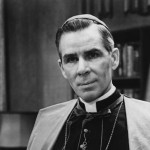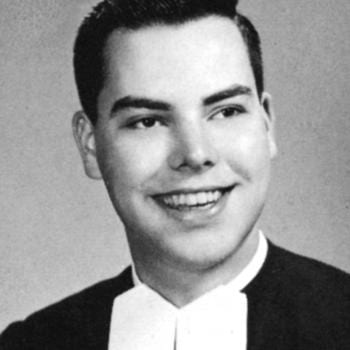She was a woman of our own times — and one who defies easy categorization.
This morning, the good people at Huffington Post have just posted this reminiscence from writer and editor Robert Ellsberg:
Despite all the sadness and suffering around her, she had an eye for the transcendent. There were always moments when it was possible to see beneath the surface. “Just look at that tree!” she would say. It might be an act of kindness, the sound of an opera on the radio, or the sight of flowers growing on the fire-escape outside her window: such moments caused her heart to rejoice. She liked to quote St. Teresa of Avila, who said, “I am such a grateful person that I can be purchased for a sardine.”
Above all she was a woman of prayer. She attended daily Mass, when she was able; she rose at dawn each day to recite the morning office and to meditate on scripture. After years of reading the breviary the language of the Psalms had become her daily bread: “Sing to the Lord a new song … sing joyfully to the Lord.”
When I went to the Catholic Worker I was not motivated by explicitly religious interests. Like Dorothy, I had been raised in the Episcopal Church, but I had pretty much drifted away from organized religion. What drew me to the Catholic Worker was Dorothy’s lifetime of consistent opposition to war, and the fact that her convictions were rooted in solidarity with the poor and those who suffered. Ultimately, I came to appreciate not just Dorothy’s anti-war convictions but the deeper tradition and spirituality that sustained her. I understood nothing about Dorothy if I didn’t realize the importance of the sacraments, prayer, liturgy, and the communion of saints, in which her witness was rooted. When I understood that, I felt a need to become a Catholic myself.
I was received into the church in a small chapel in a tenement apartment of the Little Brothers of the Gospel. Dorothy greeted me afterwards with much joy, giving me an old biography of Charles de Foucauld and a cross made out of nails. “No one will dare to arrest you as long as you’re wearing that,” she said.
She recalled the occasion of her own first communion in a church on Staten Island, many years before. “I was all flustered with the occasion and I said to a woman, ‘Oh, I must get home. I’ve got a baby to feed.’ And the woman said, ‘Why, I didn’t know you were married.’ And I said, ‘I’m not.’ And you should have seen the expression on her face, wondering whether they hadn’t made a terrible mistake!”
It was one of our last conversations. That fall I returned to college. So many volunteers over the years had come and gone. She wished me well and urged me not to forget her. “What is your favorite book by Dostoevsky?” she asked. “The Idiot,” I suggested arbitrarily. “Mine too!” she replied with delight.
She died soon after, on November 29, 1980.
That was over thirty years ago. After her death I would have been delighted to see Dorothy immediately canonized and named the patron saint of peace and social justice. From a distance of three decades, however, I see that she was more than a hero for radical Catholics. At a time when the church is so greatly divided between ideological factions, Dorothy was truly a saint of “common ground” — someone who held in tension a great love for the church along with deep sufferings over its sins and failings.
There’s much more. Read the rest.
Servant of God Dorothy Day, pray for us.











